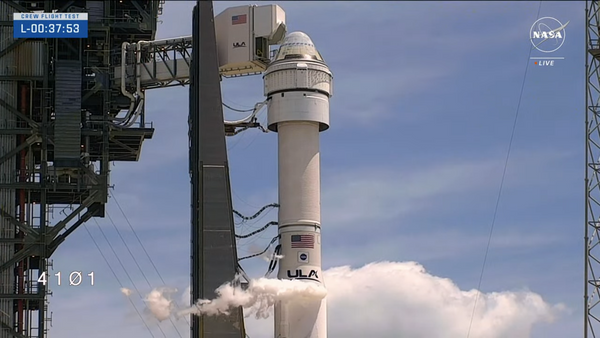
Australia's move to electric vehicles is hitting a speed bump with revelations some emergency services are demanding the cars be treated in a similar way to fireworks factories.
Property developers say new requirements from fire and rescue services are making electric car chargers almost impossible to install in apartment buildings at a time they are in highest demand.
The rules, in Queensland and NSW, even indicate electric cars should not be allowed inside car parks without significant fire protection, including sprinklers and smoke management systems.

The advice appears to contradict guidance in the National Construction Code, and experts are calling for urgent clarification to avoid high costs and long-term consequences.
Fire and Rescue NSW issued new rules for electric vehicles and charging stations in car parks in late-April, one day before representatives appeared before a NSW government inquiry into electric and hybrid vehicle batteries.
The guidelines state electric cars should be treated as "special hazards" under national guidelines and should therefore be subject to additional requirements.
According to the service's position statement, these include keeping vehicles and chargers outside buildings and away from doors where possible, and installing fire sprinkler systems and hydrants inside, as well as enhanced smoke detection and alarm systems.
"Fire and Rescue NSW does not recommend EV parking and/or charging within any building not protected by an AS 2118 fire sprinkler system," the guidelines read.
Commissioner Jeremy Fewtrell clarified that sprinkler systems were not required in typical home garages but in buildings with underground car parks that may be used by electric cars.
"We're asking people to put due consideration and to consider fully the hazards associated with batteries, particularly EV batteries, were they to fail," he told the NSW inquiry.
Queensland Fire and Emergency Services issued similar advice, including the provision of "air-handling systems".
But Australian Building Codes Board chief executive officer Gary Rake says the "special hazard" provision in the National Construction Code was designed for unexpected hazards and should not apply to cars.
"The presence of electric vehicles in a car park is now common enough to be reasonably 'expected' and 'usual' and therefore not the original intent of the special hazards provisions when they were written," he said.
Mr Rake says the conditions should only apply if there is an unusual combination of electric cars and specific building features, and while the board is reviewing car park safety, it is investigating "a global trend of vehicles being larger and containing more plastic".
The National Construction Code requires new buildings to feature wiring necessary for EV charging, and recommends installing a master isolation switch for chargers, bollards, and signs to identify their location.
Electric Vehicle Council energy and infrastructure head Ross De Rango says the existing requirements are comprehensive and working, and the additional demands are not justified by the experience of electric vehicles in Australia or overseas.
"The special hazard provisions are intended to cover unusual or unexpected circumstances and give the fire services latitude to set unique requirements," he told AAP.
"They're perfectly reasonable to apply to fireworks factories or chemical plants but road-registered electric vehicles in a typical car park doesn't qualify as unusual or unexpected."

The changing rules also appear to be challenging property developers, architects, designers and engineers who are building new apartments.
One residential developer, who asked not to be named, told AAP electric vehicle chargers were being removed from some plans due to confusing guidance and growing demands.
"It would add a significant amount of cost because those car spaces would suddenly need to have a whole lot more infrastructure than they would otherwise have had," the developer said.
"Designers are getting all kinds of inconsistent advice ... and in the absence of clear guidance, they're erring on the side of caution."
Owners Corporation Network chairman Fred Tuckwell says more apartment residents are petitioning to have electric vehicle chargers installed in their car parks and are frustrated by a lack of clear regulations.
Most electric vehicle drivers recharge their cars at home, he says, and it is not unreasonable for people in apartments to want to do the same.
"These rules are making it almost impossible," he said.
"If we have to comply with the NSW Fire and Rescue rules, this will blow EV charging in private buildings out of the window because of the massive expense."
Mr Tuckwell says fire safety requirements should be based on statistics rather than "opinion".
"Why is it that people are asking for EVs to be treated as a special hazard when petrol and diesel vehicles are 10 to 20 times more likely to catch fire?," he said.
"To impose huge financial penalties and difficulties, including forcing people to park their car outside, is counter to common sense and to what the real situation is in the real world."
The agency that collects data on electric vehicle fires in Australia, EV FireSafe, has verified only six EV fires to date, and none were related to battery charging or spontaneous explosions.

EV FireSafe chief executive Emma Sutcliffe says the group is monitoring incidents in car parks, both residential and commercial, but the greatest fire risk to electric cars followed damage to their batteries.
"The four leading causes of EV fires are road traffic collisions, submersion in floodwaters, vehicles on recall and vehicles exposed to another fire," she said.
"If one of those things applies, please don't charge your car but get it checked out."







